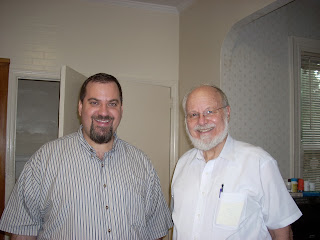Pardon Pollard?

There is a big push on, in the final days of Bush's presidency, a time when lame duck presidents traditionally hand out some pardons, to obtain a pardon for Jonathan Pollard, who's been sitting in a US Jail for 23 years, serving a life sentence for spying for Israel.
I'm not going to discuss whether what Pollard did was right or wrong or whether the punishment, life in prison, fit the crime. Nor do I wish to explore whether Pollard may have unintentionally sabotaged some of the past opportunities for his release. The only point I want to make is that those who are pushing for a pardon may be pursuing an unattainable prize and that they should reconsider their tactics and ask for a commutation of his sentence instead.
There are still many in the US military and diplomatic communities who are extremely loath to see Pollard released. Their power is waning over the years as new faces rise in the Pentagon and State Department, but make no mistake, it's still there. Bill Clinton considered doing so in 1999 but was quickly advised against it. It's unlikely that an effort to get him pardoned would succeed today, even with the sympathies of President Bush.
It may be just semantics. Many of Pollard's supporters may be unaware of the difference between a pardon and a commution of sentence. According to Wikipedia:
Commutation of sentence involves the reduction of legal penalties, especially in terms of imprisonment. Unlike a pardon, a commutation does not nullify the conviction and is often conditional.
By pushing for a "pardon" in the public eye, activists may strengthen opposition to his release. Those in the military infrastructure see Pollard as an ultimate traitor, a US citizen spying for an ally. They see a push for a pardon as a slap in the face of the US.
On the other hand, pressing for a commutation of sentence on humanitarian grounds, while admitting that Pollard did something wrong, and acknowleging that the conviction should stand, has a much higher chance of success.
-----------------------
-----------------------
Update at 4:50 pm: Just saw this article which refers to a "Pardon" in the title and in the first paragraph, but refers to a commutation of Pollard's sentence in the second paragraph. Organizations such as Free Pollard Now, which is the main source quoted in the article, should stress "commutation" vs. "pardon". Public opinion can make a big difference in cases like this and public opinion often turns on the phrases used in the press.

Comments
Post a Comment